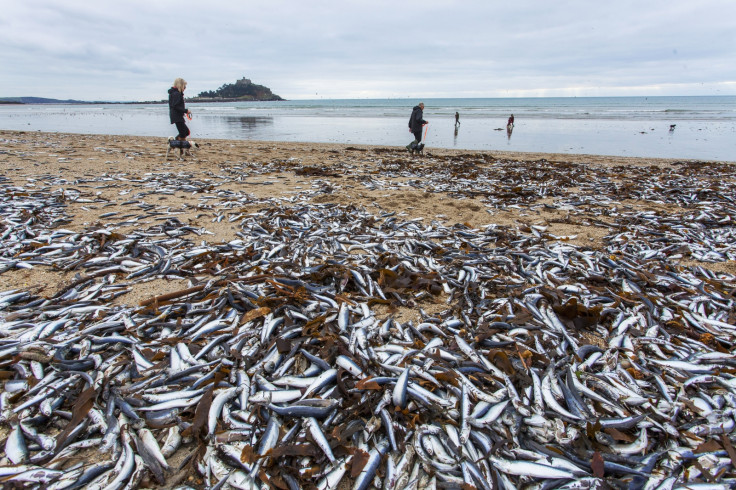Heatwave leaves Australian river with millions of rotting dead fish
The fish are thought to have died due to a shortage of oxygen in water.

Millions of dead fish were found in a river in the Australian Outback after the country saw record temperatures. The rotting fish clogged a portion of the country's second-longest river on Friday.
The mass die-off occurred near the New South Wales town of Menindee in the Darling River. The fish are thought to have died due to a shortage of oxygen in water after the temperatures in the region reached 40°C (104 °F).
"Cause is attributed to large floodwater draining back into the river with high nutrient loads and hot weather," explained the New South Wales Department of Primary Industries (DPI) Fisheries. "This contributes to Dissolved Oxygen (DO) depleting overnight resulting in fish deaths. Some dead fish are reported to be on the floodplain having been stranded in off-channel waterbodies as the river levels recede," added the statement published on DPI's website.
The images that have been posted to multiple social media platforms show the river lined with rotting fish. The authorities have now launched a massive clean-up drive so that the water supply in the region is not affected. An emergency hub has been established in New South Wales to monitor water quality and coordinate the drive.
Millions of dead fish washed up in a river in Australia after a bout of extreme weather.
— Euronews Green (@euronewsgreen) March 21, 2023
Officials say the die-off likely occurred due to a heatwave and recent flooding.
Fish need more oxygen in hot weather, but oxygen levels in the water dropped after recent floods receded 👇 pic.twitter.com/k4mqXt9pLY
"The water supply via the treatment plant works Menindee is monitored 24/7... I'm comfortable we're in a good spot regards to water quality at the moment," the BBC quoted NSW Police Commander Brett Greentree as saying.
He went on to add that it will be impossible to remove the carcass of every fish, but the authorities will try to do their best. "I'm certainly not making promises that all the millions of fish will be removed by contractors because that is really a logistical nightmare," Greentree said.
"I understand and acknowledge the smell and sights on the river — nobody wants to see that," he added. The authorities have had to supply potable water to the residents who rely on the river for their water supplies. Some charity organisations such as OzFish have also launched a search operation to save the fish that might still be alive.
The current incident comes after two similar incidents that were reported in 2018 and 2019 in the Menindee area. Over a million fish were killed due to a 25-mile-long algal bloom.
Algal blooms are an overgrowth of algae in bodies of water. Some of them release dangerous toxins, making the water unfit for humans and marine life. They commonly occur where nutrients are high, such as in areas where agricultural run-off occurs, and can be identified by their bright green colour and putrid smell. They sap oxygen out of bodies of water, causing the fish to asphyxiate.
Algae are essentially a group of plants and can be found in all types of water, including salt water, fresh water, and brackish water. The problem is that these blooms are increasing in size and frequency as global temperatures rise.
Similar incidents have been reported across the world over the last few years. In the UK, around 100 dead roach fish were found dead at Belper River Gardens in Derbyshire after temperatures went past 30ºC in the area last June.
In August last year, Polish authorities recovered 100 tonnes of dead fish from the Oder River that flows through Poland and Germany, prompting governments to take action and work out the cause behind these mass deaths. It took more than 500 Polish firefighters to pull out the dead fish from the water with the help of boats, quad bikes, and drones over the last few days.
The Polish government had even announced a reward of 1 million zloty or €210,000 (£180,000) for anyone who can "help find those responsible for this environmental disaster."
© Copyright IBTimes 2025. All rights reserved.






















